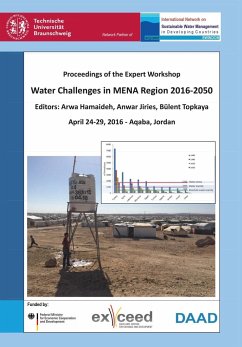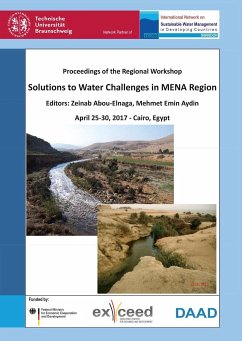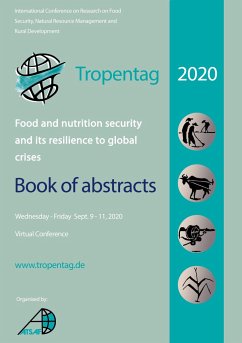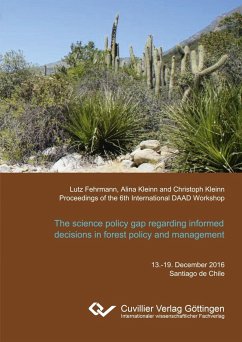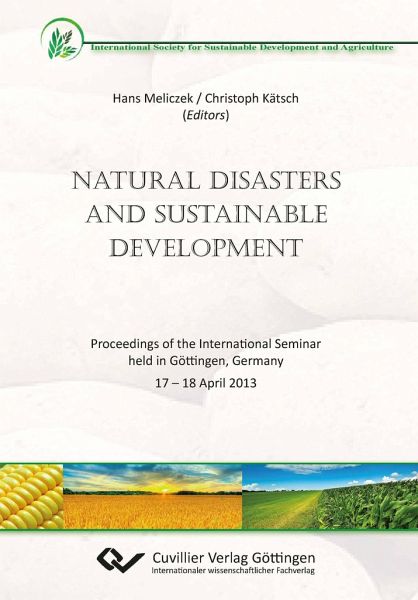
Natural Disasters and Sustainable Development. Proceedings of the International Seminar held in Göttingen, Germany 17 - 18 April 2013

PAYBACK Punkte
0 °P sammeln!
The exorbitant devastation caused by hurricane Sandy in Haiti and the Eastern United States in October 2012 has caused increased attention and concern about the effects of natural disasters. Similar calamities have occurred in recent times by a number of other countries that were affected by earthquakes, volcanic eruptions, floods, tsunamis, drought and wildfire. While it proves nearly impossible to forecast the event of such incidents tremendous efforts are being undertaken to impede their negative consequences on human life, habitat and the environment. Over the years national and internatio...
The exorbitant devastation caused by hurricane Sandy in Haiti and the Eastern United States in October 2012 has caused increased attention and concern about the effects of natural disasters. Similar calamities have occurred in recent times by a number of other countries that were affected by earthquakes, volcanic eruptions, floods, tsunamis, drought and wildfire. While it proves nearly impossible to forecast the event of such incidents tremendous efforts are being undertaken to impede their negative consequences on human life, habitat and the environment. Over the years national and international institutions have been engaged in activities to mitigate and prepare against disasters and organize emergency and recovery operations. Against this background the organizers of the seminar have invited scientists, administrators and practitioners to review and present an analysis of their experiences in the fields of disaster prevention and emergency management. They reviewed economic, technical, social and political implications of disaster related activities and evaluated their effectiveness. This book is based on the research findings presented at the seminar. It was attended by 21 participants from nine countries. Their contributions cover a wide range of topics and include national and international endeavours to prevent disasters, reduce calamities, conduct rescue operations, provide humanitarian aid and facilitate disaster-prone reconstruction. The geographical areas covered by the papers extend from Haiti and Nigeria to Armenia, Bangladesh, India and Pakistan. One paper presents a global overview over natural disasters and sustainable development, one deals with the role of modern information technology in crisis prevention and crisis management and one with the provision of safe drinking water for victims of natural disasters.






